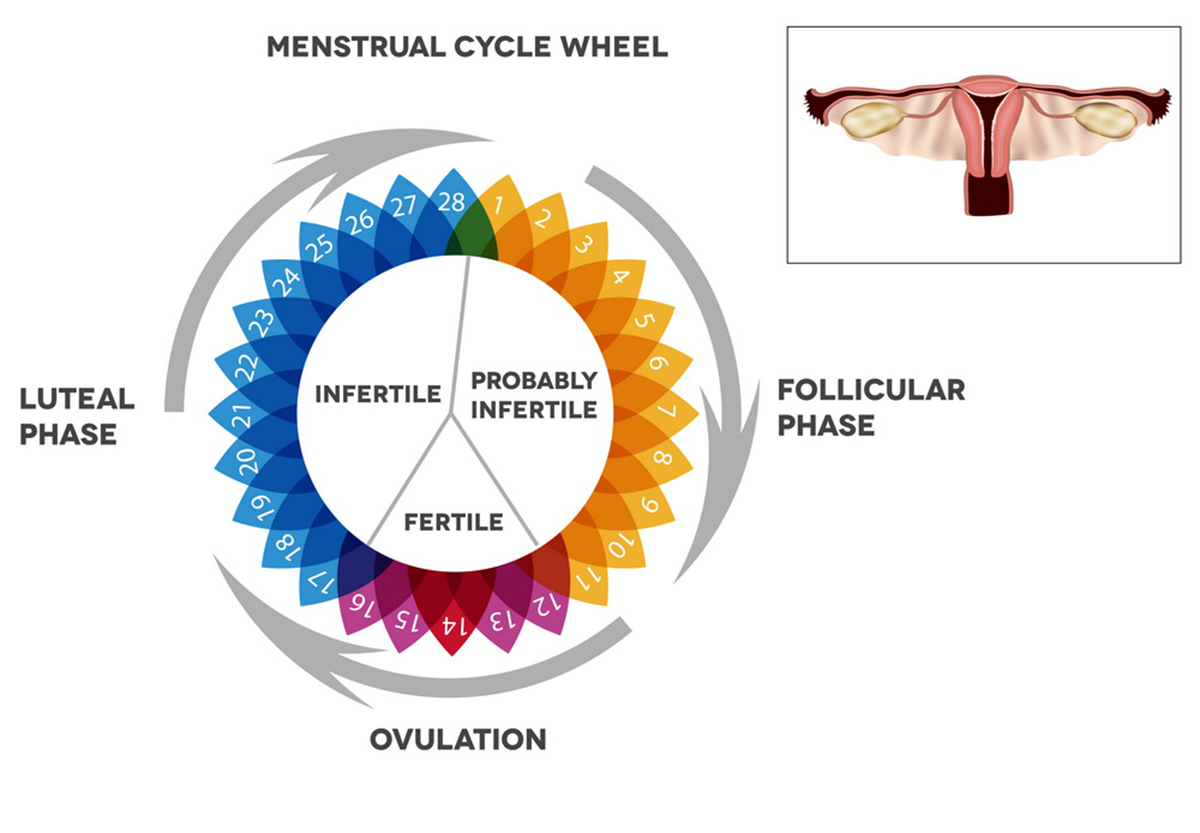Table of Contents
Periods — most women see them as an annoying phenomenon. They're mildly annoying for some, and devastatingly annoying to those who have to take painkillers and call in sick every month. The average woman has about 300 menstrual periods in her lifetime. Most of us have a rough idea of the length of our menstrual cycles, and we also know that we ovulate somewhere between two periods. Most of all, though, we know that we don't really like menstruating.

Then, when we decide to try to get pregnant, a whole new world opens. Most couples who are ready to add to their family would like to conceive as soon as possible, and for that they need to find out when the female partner is fertile. This adventure leads many to seek out new information about the menstrual cycle.
Your Menstrual Cycle
Your menstrual cycle has two phases: the follicular phase and the luteal phase. Follicles mature during the first stage and one follicle starts dominating, (usually) culminating in the release of one egg during ovulation. The follicular phase is controlled by FSH, follicle stimulating hormone. While follicles compete for domination, the lining of the uterus also grows in order to provide a cushy environment for the egg if it is fertilized.
Ovulation is triggered by LH, luteinizing hormone. This hormone is suppressed by estradiol during the follicular phase, but when that hormone reaches certain levels estrogen starts dominating instead. This, in turn, triggers the release of LH from the pituitary gland. The LH surge signifies the start of ovulation, and it's this surge that you detect if you use ovulation predictor kits. Once it takes place, you have 12 to 24 hours before the egg starts disintegrating.
See Also: Implantation bleeding or period?
Though ovulation itself lasts no longer than a day, a woman's fertile window is considerably longer.
That is because sperm cells have the ability to survive within the female reproductive system for quite a while — up to five days, in fact. Sperm that are already present when the egg is released during ovulation get a chemical signal that they can stop waiting and start fighting to win the "egg race". At the same time, couples who have intercourse the moment an ovulation test detects the LH surge also have a good chance of getting pregnant during that cycle.
- Photo by shutterstock.com
- Photo courtesy of Daniele Pieroni by Flickr : www.flickr.com/photos/lastquest/1473383832


Your thoughts on this